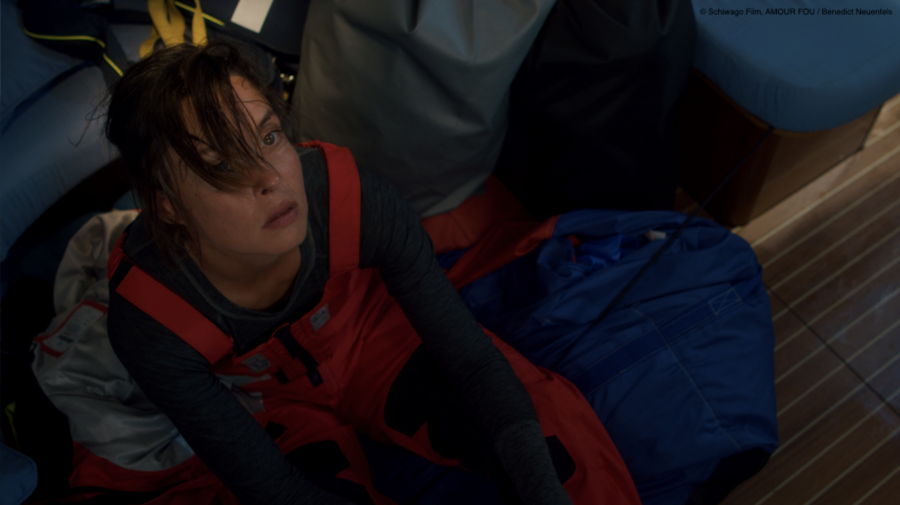Every year, thousands of refugees risk everything to find safety abroad. Many from war-torn countries near the Mediterranean often brave the open sea in a desperate and often fatal bid. Wolfgang Fischer’s “Styx” strives to tell this story in a timeless fashion, a hallmark of great films. It asks us to confront its theme today and encapsulate it for future generations to reflect upon, hopefully from a position of greater knowledge.
The name “Styx” hearkens back to the River Styx from Ancient Greek mythology, a symbol of death and treacherous journeys. The journey that the film’s protagonist, ER doctor Rike (Susanne Wolff), takes has her leave her native Germany to sail to the remote island of Ascension. Its jungles — an untouched paradise — fascinate her, but her journey there is interrupted by a sinking ship full of stranded refugees. The ocean is an omnipresent force, and the bodies of the refugees on the ship writhe in its waves during a violent storm.
“Styx” is a slow burn, mesmerizing at each turn. Monkeys perform wonderful acrobatics in Gibraltar, where Rike begins her journey. Her daily routine on the boat is meticulous and fascinating to view in contemplative silence. Our hero’s deliberate and earnest treatment of an injured boy, Kingsley (Gedion Oduor Wekesa), is gripping and intense, punctuated only by Rike’s belabored breaths.
Despite the film’s grim premise, “Styx” is a true masterpiece. Fischer truly flexes his creative muscles with this film, transitioning him from moderate success in Germany and his native Austria to international acclaim. Wolff and Wekesa both deliver measured performances, allowing the drama of their situation to speak for itself. I was enthralled from beginning to end and, frankly, shocked when the film was over. It could have held me for another hour.
Although “Styx” pays homage to Greek mythology, it also borrows from its native German film language. It is reminiscent of classically German dramas, the likes of which have a history stretching back 100 years. There’s a fascination with the quotidian and a propensity towards understated acting — in neither film is the focus on star power and acting chops. I’m reminded of “Ali: Fear Eats the Soul” (1973), a niche film that depicts a subtle romance between two very different people.
“Styx” is an impressive work of art and a captivating watch that pays due respect to a contemporary tragedy and delivers effortlessly convincing drama. It drives its premise home in a manner that only exquisite cinema can.
Email Fareid El Gafy at [email protected]


























































































































































